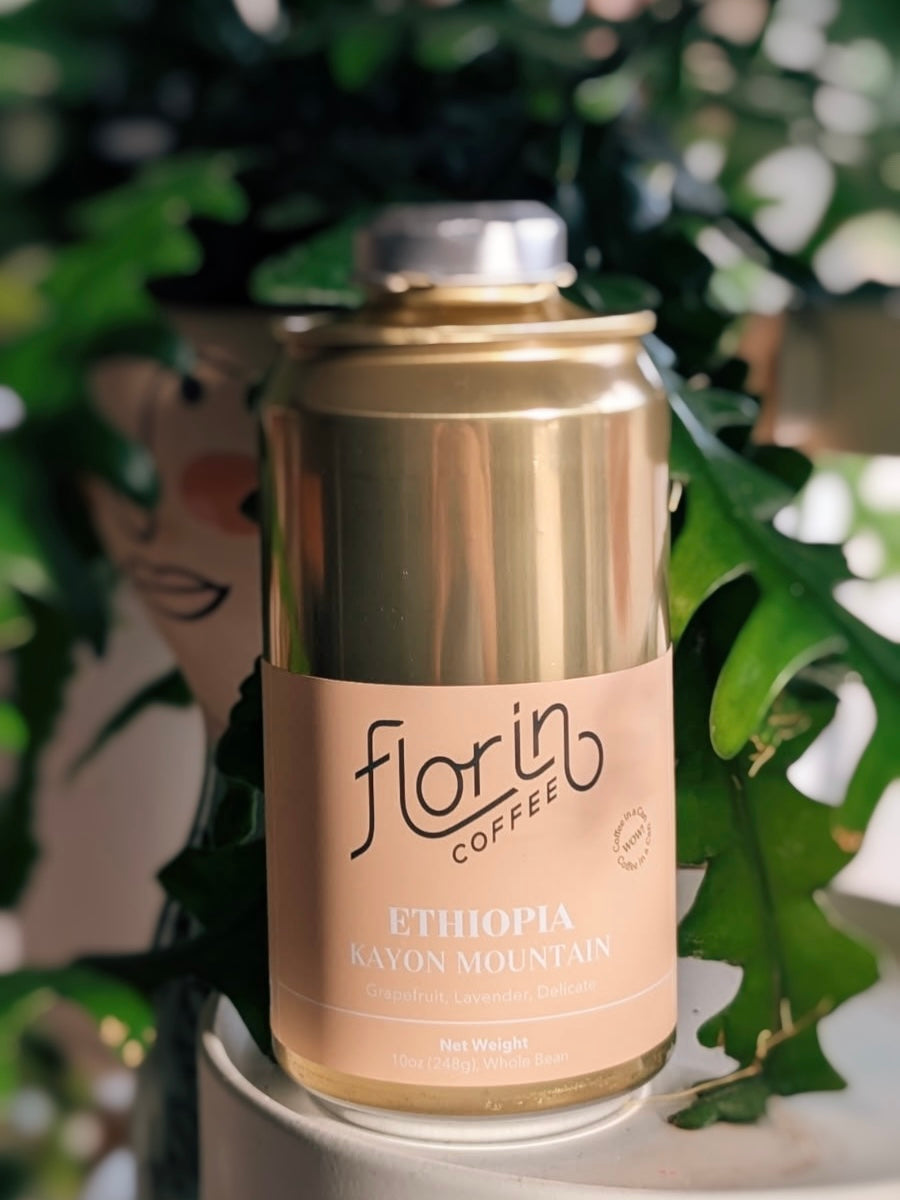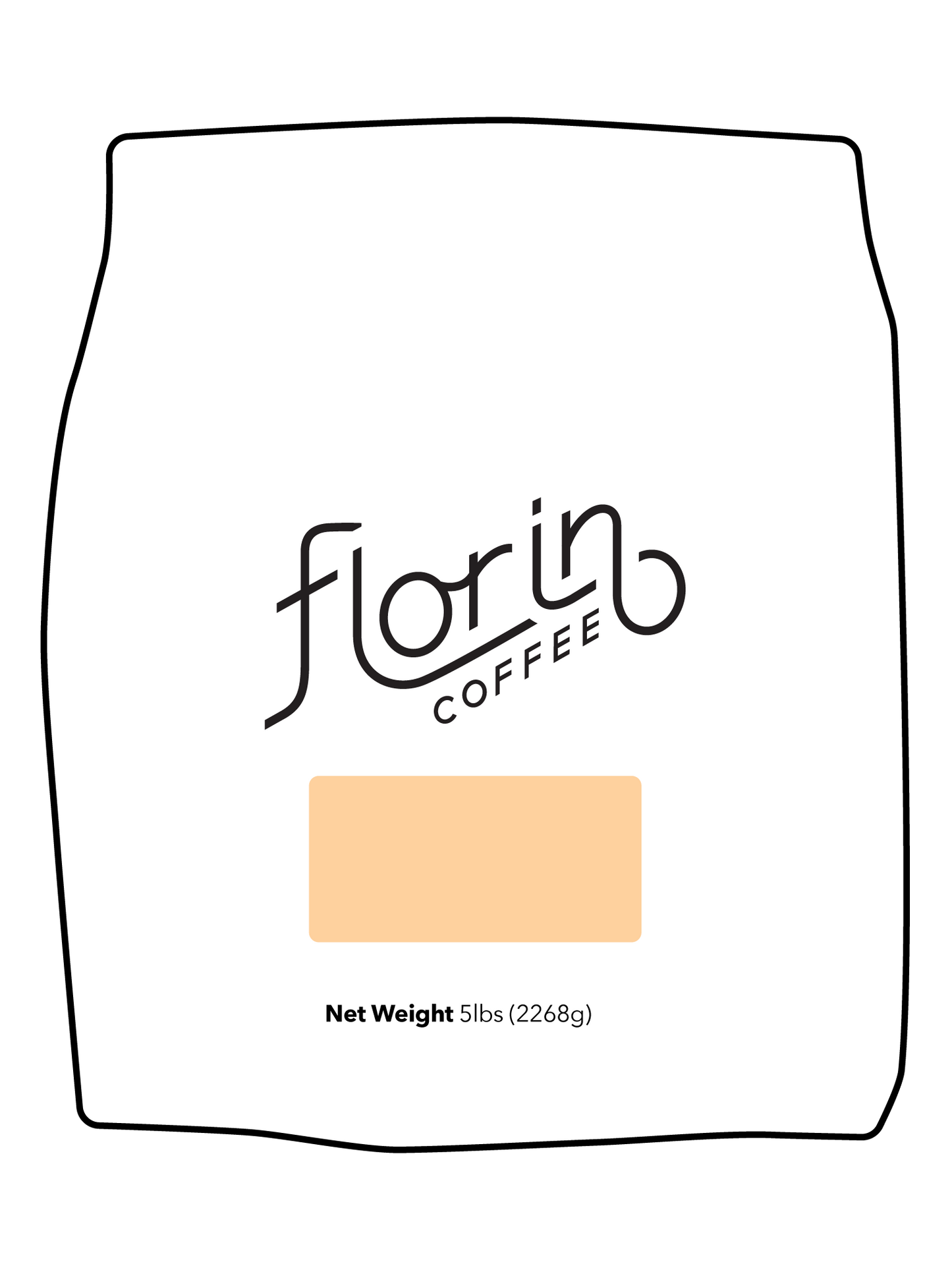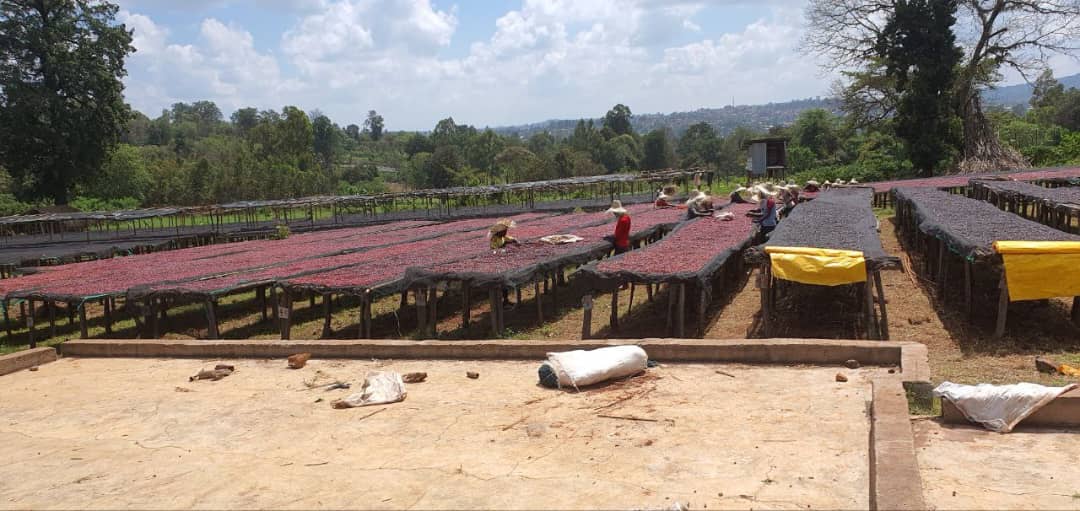GRAPEFRUIT, LAVENDER, DELICATE
Ethiopia Kayon Mountain
Ethiopia Kayon Mountain
Producer: Kayon Mountain Farm
Region: Guji
Varietal: Catuai 62
Altitude: 1800-2100 masl
Process: Natural
Importer: Red Fox Coffee Merchants
Tasting Notes: Grapefruit, Lavender, Delicate
Roast Level: 2

Couldn't load pickup availability
Whole Bean
Whole Bean
Note: All coffee is sold Whole Bean. To learn why, check out this Blog Post. If you'd like your coffee ground, please say so in the Special Instructions box at checkout. Let us know what device you're brewing on so we can get the grind right (ie. Ground for French Press).
Shipping & Fulfilment
Shipping & Fulfilment
Roasted on Monday and Thursday, shipped the day after.





KAYON MOUNTAIN FARM
Kayon Mountain farm was established in 2012 by a family who have been in coffee for a generation. Most families in the area make a living by farming coffee as a primary cash crop. Taro washing station (one of the washing stations run by Kayon Mountain) is one the biggest processing sites in the area, allowing producers in this rural area to easily sell their coffees, find better prices, and access more job opportunities within the washing station infrastructure. /// In addition to premium coffee, Kayon Mountain has a focus on social responsibility. It has constructed a high school in Taro so that students won’t have to travel to receive education, distributed coffee seedlings to local producers, financially assisted member farmers in times of need, and supports an orphanage school in a neighboring village. /// The farm has a total area of 150 hectares, all on fertile volcanic red soil or deep sandy loam. Coffee trees are intercropped with false banana trees for shade. They make compost from coffee pulp and, in general, try not to waste anything they can use instead for production or conservation. /// This is a natural processed coffee (often called “sundried” in Ethiopia), so instead of removing the fruit and drying in parchment, whole, ripe cherries are dried in the sunshine on raised drying beds for about 15–18 days depending on the weather conditions. They’re turned regularly to prevent moisture concentration or overdrying. The natural process is difficult to execute well: beans need to be turned frequently for consistent and even drying. It’s easy to end up with mold issues or an excess of fermentation flavor, or at the very least achieve an acceptable cup but overpower the natural terroir of the coffee (the unique flavor that comes from variety, soil, proper harvest, and clean processing). But, when done right, the results can be sublime, with the natural terroir of the coffee further enhanced by an additional injection of sweetness and high-impact fruit flavor.






